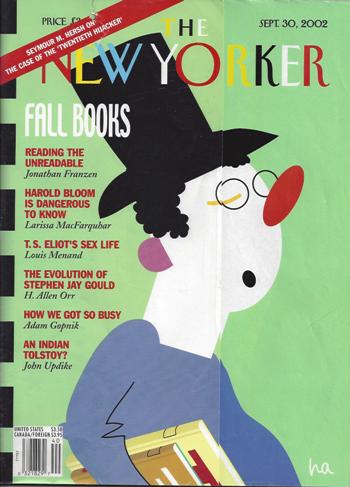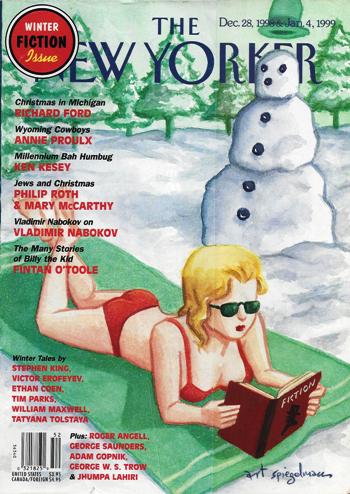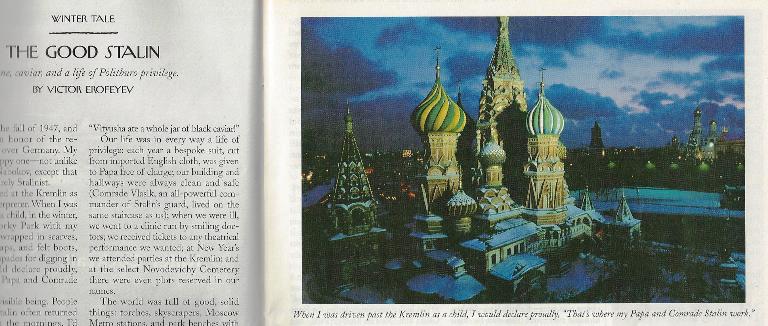 Ký Lượm Tuyết |
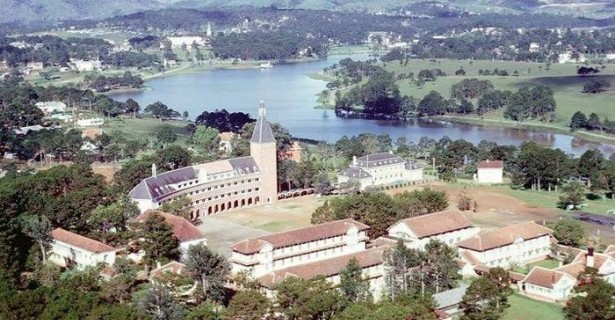 A
Child’s Christmas in Dalat Wild orchids
and colored, painted pine cones—these things I remember of Christmas in
Vietnam. It was in Dalat, the hill station city with its persistent fog
and
whispering pine forests and littered with French-built villas, that I
first
celebrated Christmas. My father had been transferred there after the
1968 Tet offensive,
and he brought the entire family with him. The distant
bombing and the tropical heat of Sadec in the Mekong Delta were
replaced by
Dalat's cool fresh breezes and romantic lakes. I was 5 years old, a
child
running free on fallen pine needles and tall green grass in the forest
as I
searched for wild mushrooms, pine cones and orchids for Christmas
decorations.
My older brother, sister and I would each carry a wicker basket and
eventually
fill them with all that nature had to offer. Those days we never bought
any
Christmas decorations. We used to
sing. And by singing, I mean spontaneously. As children we were not at
all
self-conscious and sang with gusto and often off key, but always with
gusto. In
the woods, early in the morning, we sang Christmas carols and chased
each
other, and sometimes the neighborhood kids would join in. Afterwards,
our
sweaters and hair would be embedded with pollen and pine needles. Dalat
was a
sparsely populated town then, and our laughter and singing echoed and
resonated
in the dew-covered forest. At home we
helped our mother decorate the Christmas tree. Its fresh pine fragrance
brought
the whole forest inside with us. My mother would roll cotton into
shapes of
little chicks and angels with wings and place them on the tree. The
cones and
mushrooms she painted green and red and blue and hung them everywhere
in the
living room. These ornaments were all the decorations we needed. When my
paternal grandmother came downstairs all dressed up in her ao dai
dress, she
would take us to mass. She held my hand and led me and my siblings on
the dirt
road to a local church whose bells rang out in the air. Though I wasn't
a
Catholic, I remember feeling a spiritual devotion in that church.
Everyone was
smartly dressed and smiling. People sang and read their psalms.
Afterwards the
priest distributed candy for the children. I remember it was early
evening, the
sun had sunk behind a bank of fog as we walked home, the world was
glowing in a
lavender hue. But before
going home we would stop by the Hoa Binh market to buy some fruit and
baguettes. Children with pink round cheeks held their mothers' hands,
and young
adults in their best clothes walked around to show off their attire.
The
strawberries and plums we would eat on the way home. At home, the
best part of the Christmas dinner was dessert. My mother, a consummate
baker,
would make the traditional buche de Noel, a chocolate covered cake in
the shape
of a log with a tiny Santa Claus sitting on top. Then my father would
open the
champagne and pour each of us a glass. We didn't receive any gifts as
children
did in America, but we didn't need any and never felt the loss. That was my
favorite memory of Christmas in Vietnam. If you think that such a
memory is out
of place for a country whose image is full of conical-hatted figures
working in
the rice fields, then you haven't been to Dalat. Dalat, built by the
French as
a hill station resort, was for the most part a peaceful town, until
near the
end of the war. For those of us who had the fortune to live there, the
war was
often at a distance. Unlike the popular American belief shaped by
Hollywood
films, Vietnamese did not always live under constant terror and in
half-burned
villages. Instead, what we had in Dalat was a gentle, small town life
that I
haven't found again living here in America. These days
our Christmas is a big celebration in the San Francisco Bay Area. My
paternal
grandmother is long gone, but the Christmas trees are heavy with
trinkets and
baubles at my siblings' households. We vie to show off to one another
how well
we decorate our homes. Santa on the roof; reindeer on the lawn. Our
Christmas
dinner is often replete with seafood and my father's favorite dish,
bouillabaisse, and, of course, roasted turkey and wines and champagnes.
It is a
testament, I suppose, to how well we have fared in the land of plenty. So many
years have passed since the war ended, yet it is not the horrors of war
that
dwell now in my mind during Christmas time. It's the transcending peace
in a
tranquil world that is now lost. Dalat, too,
like the rest of Vietnam, is crowded with people and the trees are
fewer and
the forests thinned. Even the weather had changed, growing warmer with
fewer
trees. Still, I bet
there are children running and laughing, as before, among the pine
needles and
singing brooks on that high plateau I once called home. 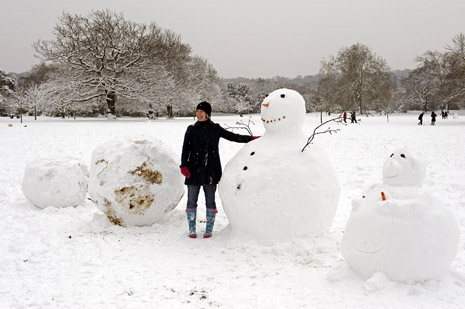 December 28,
2012 Like everyone else I know, when winter comes I think of Plato’s theory of ideal forms. If I say circle or square, you know what I mean, though in some sense you have never seen a circle—the shape in the plane where all the points are exactly equidistant from the center—because in reality everything is always at least a little off. Plato thought truth ought to work this way, that what we understand as truth is always an approximation to an ideal form. Note: Một
bài viết thật lạ về Mùa Đông, Mùa của Toán Tuyệt Vời. Winter Tale
Mùa Đông Con chó đen
đùa với bãi tuyết Nghe nói mùa
Thu ở đây đẹp lắm Lạnh, Hai vợ chồng
ôm cặp Tuổi năm mươi gấp sách lại đứng nghe Đi trong gió Nhân tiện
thông báo, tuần tới, GCC đi Cali thăm "bạn, tưởng là bạn, nhưng đúng là
bạn"!
Sách Mùa Thu
& Giả Tưởng Mùa Đông Cái tít bài
viết về ông Trùm phê bình Harold Bloom, của Larissa Macfarquhar, trên
tờ Người
Nữu Ước, số 30 Tháng Chín 2002, mới ghê, cứ như là viết về Thầy
Cuốc: Harold Bloom is dangerous to know. Thầy
Cuốc thì rất nguy hiểm để mà biết! Bài viết được
lắm. TV post bản tiếng Anh, và nếu có thì giờ, đi lai rai, nhân đó, lèm
bèm lai
rai về phê bình, gợi hứng từ câu phán của ông tiên chỉ VP: Mít đếch có
phê bình
gia. Nhờ câu phán
của ông, mà chúng ta có nữ phê bình gia Thụy Khê, vì theo như bà trả
lời phỏng
vấn, sở dĩ bà viết phê bình, là vì nghe VP than, cõi văn
Mít đếch có thứ “của hiếm” này ! Số Mùa Đông
1999, cũng thần sầu! Có bài viết thú lắm, về "Xì Ta Lỉn", của 1 ông
“giống
ông bố VTH”, 1 cận thần của Xì. Chưa kể
mấy giả tưởng, thí dụ, của Tatyana Tolstaya, về tuyết, và nhất là bài
điểm sách Hãy nói đi, Hồi Ức, của chính tác giả
của nó, là Nabokov
Tiếc thật! 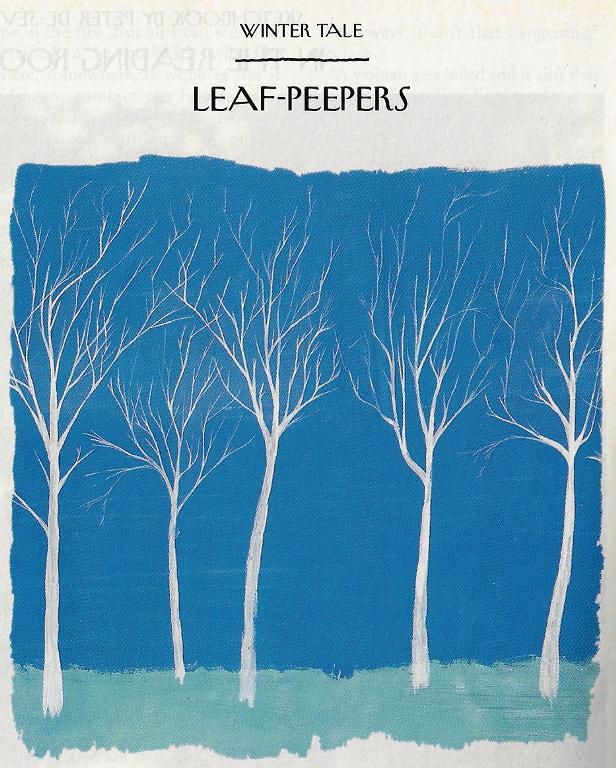
WHEN I was a
kid, there was only one real tourist season in Maine: the three months
between
Memorial Day and Labor Day. But in recent years the tourists have been
reappearing a month or so later, as leaf-peepers. In October, their
cars (most
seem to be Volvos) fill the back roads between Kittery and Fort Kent,
moving
slowly, weaving back and forth across the center line as the drivers
gawk out
their windows, looking for that leaf-peeper El Dorado known as "peak
color." You also see their cars in New Hampshire, parked bumper to
bumper
along the break-down lane as the owners train their Nikons down the
gorges and
ravines and frantically burn film, as well as farther west, in Vermont,
where
there's a cider stand around every bend and folks from Wisconsin hobnob
with folks
from Illinois about where the color is best (they agree that it's
always north
of where they are). But by late October-as the leaves start to dull and
the
trees show their branches (leaf-peepers don't come for branches)-
they've gone
home to eat their Thanks-giving dinners and Think Snow, as their bumper
stickers say, only to return after New Year's Day, no longer summer
people or
leaf-peepers but ski bums, with roof racks mounted on their all-wheel
drives. Between
the leaf-peepers' going and the skiers' coming, there is a hiatus which
has
taken me fifty years to appreciate. The weather is quiet. The back
roads empty
out, and the vehicles are different: they are pulp trucks, panel
trucks,
pick-'em-ups (usually jammed with wide-bodied fellows in orange down
vests),
and old cancerous Buicks. In the general stores of towns like Lovell
and Sanborton,
the talk relaxes, becomes less stagey. One hears less "ayuh" and
"Coss we will." The season tilts. Everything creaks. One can hear
it-the sound is the bony skitter of small animals moving through the
trees,
doing the last of their pre-winter shopping. In these weeks, the woods
give up
their secrets. A squirrel moves with indiscreet fanfare through the
fallen
leaves, and you can also see it; there is no concealing greenery except
for
austere pines and spruces. It's possible that you'll spot a deer (or a
moose)
moving among the freshly opened lanes of the forest: before the first
real
snowfall, they're stuffed full with all the forage they can gobble, and
look
like a child's drawing, their squarish bodies somehow unlikely above
their
long, spindly legs. Our house in
western Maine juts out of a steep slope above a long finger of lake
that in the
summer we never see (there are winks of blue amid the trees in the late
afternoon) and which late in the winter we see only as a flat,
uninteresting
expanse of snow. But in December the lake is suddenly there, all of it,
a
flinty arrowhead under what is usually a sunless gray sky. With no
dazzle to
distract the eye, one sees the water in a single, effortless
north-south sweep.
There is grimness to this sort of landscape, but also a thin-lips-and-
no-makeup
beauty. After the leaves fall, geography tells its tale with great
simplicity.
The drifts of fallen leaves can't obscure the thinness of the soil:
rocks break
free everywhere, and hill-sides become graveyards full of tumbled,
unlettered
tombstones. In the occasional sunlight, almost all shadows fall
straight. Romantics
compare the cycle of the seasons to the cycle of human life, a
comparison I
have never really trusted. And yet now, at the age of fifty-one, I find
something in it, after all. Sooner or later, life takes in its breath,
pauses,
and then tilts toward winter. I sense that tilt approaching. When the
idea
threatens to become oppressive, I think of the woods in New England
tilting
into winter-how you can see the whole expanse of the lake, not just the
occasional
wink through the trees, and hear every movement on the land that slopes
down to
the water. You can hear every living thing, no matter how cunning,
before snow
comes to muffle the world.
-STEPHEN
KING Mùa Đông Con chó đen
đùa với bãi tuyết Nghe nói mùa
Thu ở đây đẹp lắm Lạnh, Hai vợ chồng
ôm cặp Tuổi năm mươi gấp sách lại đứng nghe Đi trong gió Nhân tiện
thông báo, tuần tới, GCC đi Cali thăm "bạn, tưởng là bạn, nhưng đúng là
bạn"!
|
